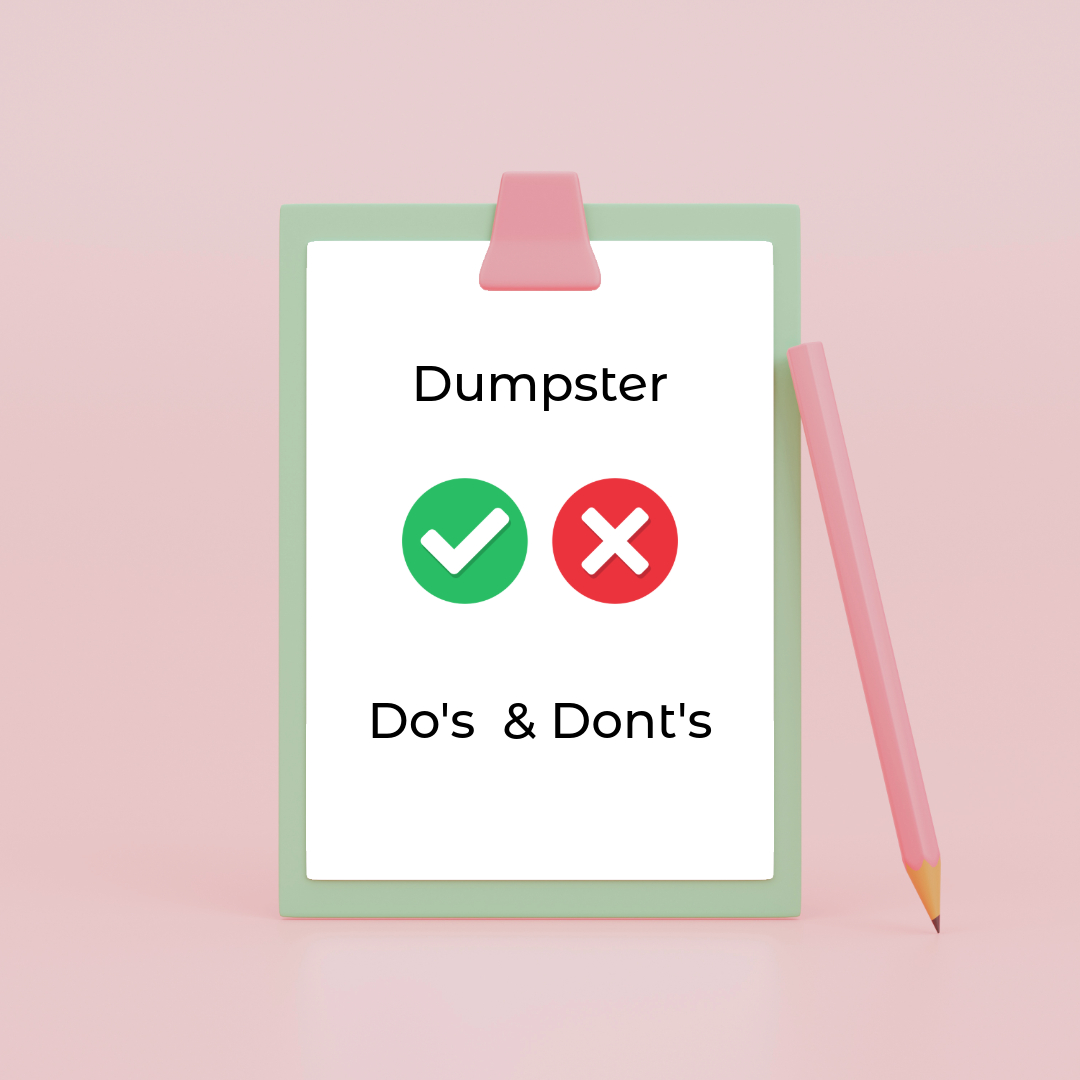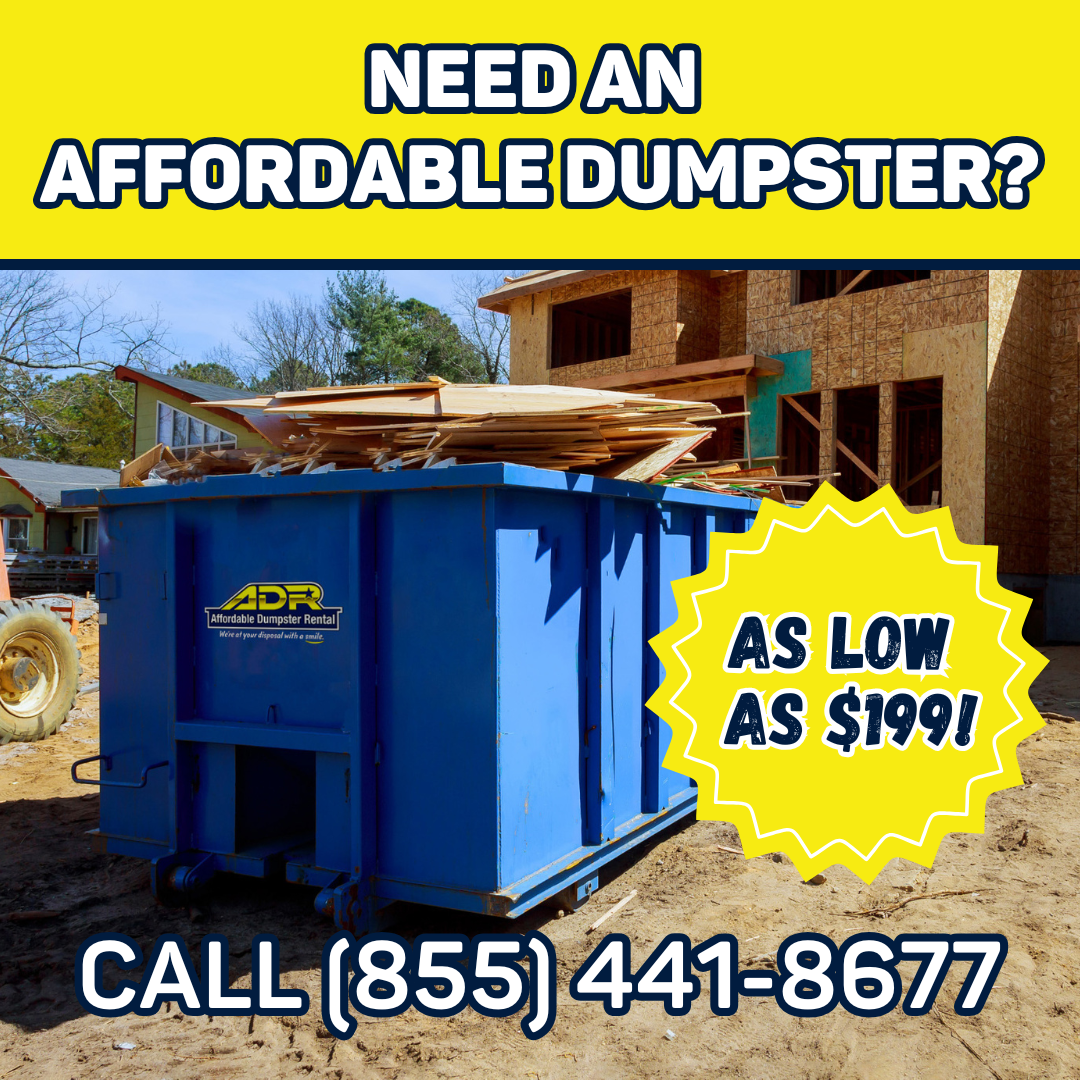


Renting a dumpster can be an incredibly efficient way to manage waste for a variety of projects, from home renovations and cleanouts to construction and commercial use. However, for those new to the process, understanding the rules and best practices can seem daunting. This comprehensive guide aims to demystify the dumpster rental process, covering key aspects such as acceptable waste, weight limits, rental periods, and more. With these insights, you can avoid common pitfalls and ensure a smooth, hassle-free experience with your dumpster rental from Affordable Dumpster Rental (ADR). Acceptable Waste Materials Do: Familiarize yourself with the types of waste that are permitted in your rented dumpster. Generally, household debris, construction waste, yard waste, and non-hazardous materials are acceptable. Don't: Dispose of prohibited items in the dumpster. Hazardous waste, including chemicals, asbestos, paint, tires, and batteries, are typically not allowed due to environmental and safety regulations. When in doubt, ask ADR for guidance. Weight Limits and Overages Do: Understand the weight limit specified in your rental agreement. Each dumpster size has a maximum weight capacity, which reflects in the pricing. Don't: Exceed the weight limit. Overloading your dumpster can incur additional fees. To avoid surprises, discuss your project with ADR beforehand to select the appropriately sized dumpster for your needs. Rental Period Guidelines Do: Note the standard rental period and plan your project accordingly. Dumpster rental periods can vary, but they often range from a few days to a week or more, depending on your needs and the company's policies. Don't: Keep the dumpster longer than agreed without notifying ADR. If your project runs longer than expected, contact ADR as soon as possible to extend your rental period and avoid late fees. Placement Restrictions Do: Choose a suitable placement spot for the dumpster on your property. Consider accessibility for drop-off and pick-up, as well as minimizing potential damage to your driveway or landscape. Don't: Place the dumpster in a location that violates local zoning laws or HOA rules. Avoid blocking public pathways, streets without a permit, or placing it on soft ground where it could sink or cause damage. Avoiding Additional Fees Do: Prepare for the dumpster's arrival by ensuring the drop-off area is clear and accessible. Avoid placing prohibited items in the dumpster and adhere to the weight limit to prevent additional charges. Don't: Ignore the terms of your rental agreement. Unexpected fees can arise from overloading, requiring an extra haul, or extending the rental period without notice. Clear Communication and Proper Planning Do: Maintain open communication with ADR from start to finish. Be clear about your project's scope and waste disposal needs to get the best advice and service. Don't: Hesitate to ask questions. Whether it’s about acceptable waste, weight limits, or any other concerns, ADR is there to help ensure your rental experience is as smooth and efficient as possible. Renting a dumpster doesn't have to be complicated. By following these dos and don'ts, you can navigate the process like a pro, ensuring your waste management needs are met with minimal fuss. Remember, the key to a successful rental experience is understanding the rules, planning accordingly, and communicating effectively with your rental provider. With this guide, you're well on your way to a hassle-free dumpster rental with ADR.

Recent Posts